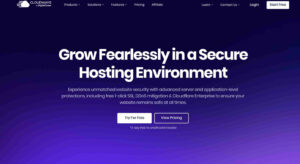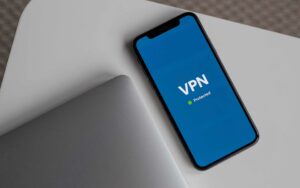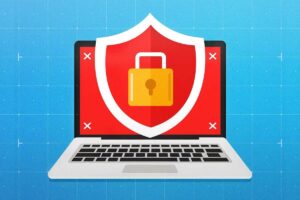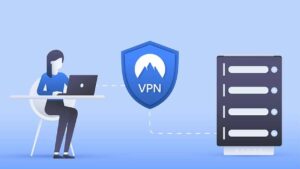10 Threats that VPN can protect you from
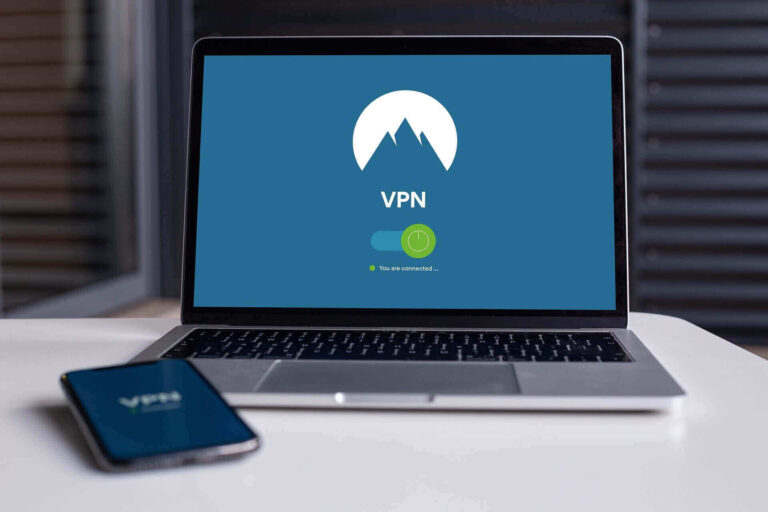
A VPN or Virtual Private Network in full is an encrypted connection between two computers that makes it possible to securely transmit data over the open Internet.
Unlike the secure layers offered by web servers, which are available to everyone. VPNs are slightly different because their connections are mostly private. And they often serve as proxies to browse the web as well.
Many Internet users do not realize the number of potential risks out there, and this is especially true with non-techies. As a result, they rarely take precautions to shield themselves from getting victimized.
A VPN can protect you from quite a few threats on the Internet. And this post lists the top 10 of them.
How A VPN Works
The HTTP protocol that powers the Internet is text-based. That is, anybody that gets between you and the web server that you are communicating with can read everything you see on your browser.
HTTPS, the HyperText Transfer Protocol Secure provided a solution to this security problem by letting a web server encrypt all communication between it and its web-browser clients. The application of HTTPS works in many areas, but there are still a few privacy issues that remain. And these are best solved using a VPN.
A virtual private network is created when two computers connect over HTTP or HTTPS and then proceed to exchange information using a pre-defined encryption algorithm. Usually though, one of the computers will function as a server to the other. And often as a proxy server as well.
10 VPN Threat Protections
1. Government Censorship
Governments around the world can be bullies, and this is especially true when they feel left behind, vulnerable, and straight-up threatened by new technology or a website. They simply censor the source.
Countless domains are currently under censorship around the world. From YouTube to Google, Twitter, and the Pirate Bay that is being blocked by 30+ countries.
Though China is notorious for blocking a host of western websites, countries like North Korea, Saudi Arabia, and Eritrea beat the Chinese here.
You can circumvent most of these simple censorships using a VPN. But keep in mind that the slow Internet speeds in a country like Eritrea can still make the process more frustrating.
2. Ad Trackers
It is no secret, Google, Facebook, and the rest follow you everywhere on the net with ads. Search for Cuban cigars today, and cigar ads will probably follow you all over the web for the next few weeks.
Secret Sushi reports that 90% of searchers have not made up their minds about a brand before searching online. While ThinkWithGoogle reports that 51% of searchers will ‘google’ an item they wish to buy. And with global e-commerce estimated to reach $4.9 trillion in 2021, it is obvious that ad dollars will continue to flow.
Surely, a VPN will put an end to ads stalking you. However, you should keep in mind that a VPN will not completely protect your privacy if you still sign in to Facebook, Google, or other web giants’ portals.
Those platforms can still record all your activities. But the good news is that you won’t get the same targeted stalker ads following you from website to website anymore.
3. Cyber Stalking
This is the employment of electronic or digital gadgets to harass or stalk individuals online. The malicious cyberbullies will often monitor the victim’s online activities, track their locations, and follow them online or offline.
The goal is often to intimidate, control, annoy, frighten, or blackmail the victim. In any situation, your life is better without a cyberbully.
Though a VPN cannot guarantee you complete protection from a cyberbully, as this depends on the methods that he is using against you, it will still drastically, if not completely, reduce his influence on your personal life.
Additional measures against cyberbullies include updating all your software, changing all your passwords, opting for multi-factor authentications, disabling geo-locations on your devices, and avoiding public WiFi hotspots.
4. Data Interception / Sniffing
Data sniffing is a method of intercepting and monitoring the data packets that are passing through any network. Anyone with the network rights can monitor your Internet connections.
The scary part, however, is that your neighbor could also sniff your WiFi. And a determined hacker could get in-between your modem and ISP by physically wire-tapping your connection, and then sniffing it. This includes both copper-based and fiber-optic cables.
If you need to keep your personal or business dealing private and away from prying eyes, then a VPN connection can help by making your data more difficult to decipher.
5. Hotspot Honeypots
The term honeypot might refer to simulated computer environments that are used to lure hackers on the Internet and catch them while trying to hack a website, but there is an older meaning.
The older honeypot refers to public WiFi networks that are used to lure users into using the Internet for free. The bad news? A hacker is on the other side, stealing all your logins and passwords. So, next time you are about to jump on to a free WiFi, stop and think!
Using a VPN in such a situation would be helpful. But keep in mind that any hell-bent malicious attacker can still crack your encryption. So, it is always best to avoid public and especially free, WiFi hotspots.
On the brighter side, the best VPN providers with reputable brands and good track records usually employ top, military-grade algorithms to encrypt everything. And these are usually tough to crack.
6. Localized Content
Many large international websites provide localized content to users, depending on their geographical location. The intent is often good, but if you are a traveler or working temporarily in a different region, then it comes with issues.
An example of such a website is the search giant Google. Everything will change according to your location. From the search results to news, ads, and so on.
The only solution to get the experience you need is a VPN, as it spoofs your location and forces the server to provide the right information that you need.
7. Geo-Restrictions
A ton of online content is geographically targeted. But unlike the localized content that is being offered to you above, this content is being restricted from you. And this is often frustrating.
Examples include sporting events, streaming videos, music, music videos, celebrity gossip, Netflix, news broadcasts, and so on.
The servers here refuse to deliver their content based on your geographical location. So, using a VPN with a point of presence in the area that it willingly serves, will give you access to the data you want.
8. Legal Prosecution
Some countries track the identities of web users that engage in specific activities. These can range from downloading copyrighted content to engaging in other outlawed activities.
The best way to prevent your IP address from getting logged on a server with illegal content or associating it at all with any activity that could lead to legal prosecution is to use a VPN proxy.
As you can imagine, this includes a virtual private network and a proxy. So, you connect to a VPN provider to create a tunnel that shields your communications from prying eyes. Then the server also acts as a proxy by connecting you to the outside world, so your IP address is hidden.
Keep in mind, however, that a hidden IP does not always hold. Less reputable VPN providers might leak your address or simply give up their logged information on law enforcement requests.
9. Geographical Pricing
The practice of geographical pricing is an old one. And it affects a range of goods from textiles to gasoline. It is simply the adjustment of a product’s price based on the buyer’s location.
This geo pricing practice also exists on the Internet. Many international websites adjust their prices based on the user’s location. Some have legitimate reasons, such as collecting sales taxes, while others do not.
With a VPN, however, you can always spoof your location. Compelling the website’s algorithms to offer you different prices. Keep in mind, however, that the differences may not be much for personal use.
For business use, on the other hand, there are lots of potential benefits. For example, a VPN could provide a business with two or more points of presence, which means, they can benefit from cheaper local prices like telephone bills.
10. ISP Throttling
ISP here refers to Internet Service Provider, and ISP throttling means when your ISP deliberately slows down your Internet browsing speed without your knowledge.
They often do this to balance their networks, by slowing down the speeds of heavy users. However, many ISPs simply do it just to cheat.
The easiest way to throttle your connection is to sniff the traffic for the HTTP protocol. The ISP can then slow down all connections to YouTube or Instagram, for instance. But if you are running a VPN, then their sniffers will only see gibberish. There would be no domain names to throttle.
Conclusion
We have come to the end of this list of the top Internet threats that a VPN can help to protect you from. And whether you understand them or not, these threats are real.
It is now up to you to determine your level of personal security & privacy consciousness. Or to determine similar needs for your business and act accordingly.
